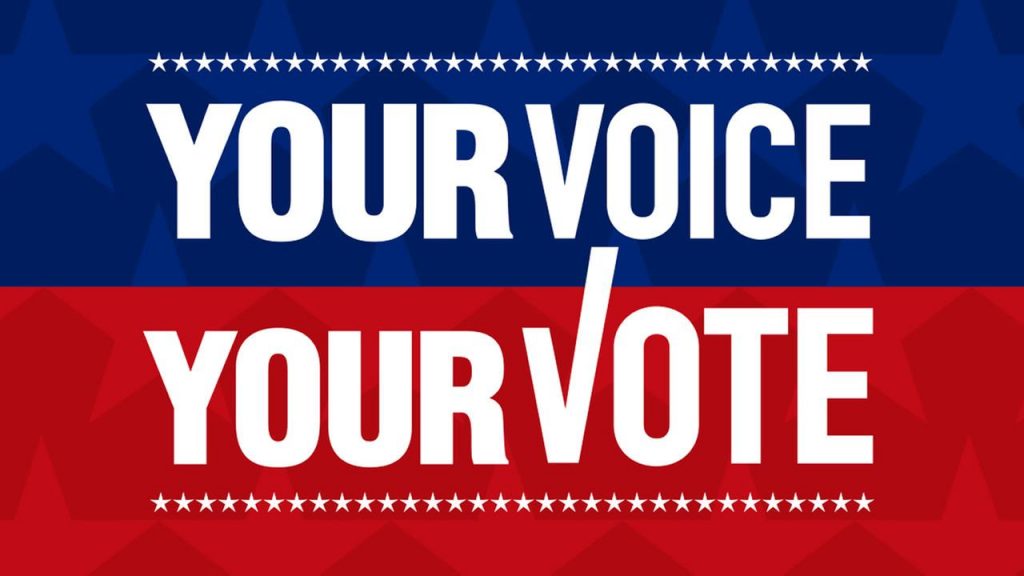
Increasingly nowadays the conversation during a good grub session among friends revolves around the fear and uncertainty of the outcome of the 2016 U.S. election. Presidential candidate Donald Trump’s campaign is being driven by xenophobic rhetoric and racial resentment. Muslim, South Asian, Black, Hispanic, and other immigrant and refugee communities within America have been particularly targeted. This November, South Asians need to get out there and vote like their life depends on it, because this year, it does!
We have already witnessed increasing examples of the negative repercussions of the intolerance Trump’s campaign continues to preach. In 2015, there was a large spike in the number of attacks on mosques across the nation from 20 in 2014 to 78 in 2015. Hate crimes within the South Asian community have included the shooting of a Sikh convenience store clerk, attacks and vandalism at mosques and Sikh temples, and threats and physical attacks on Muslim women and men.
[Read Related: Muslims Clap Back at Donald Trump’s Debate Response with #MuslimsReportStuff]
The divisive rhetoric has weaved itself into systemic intolerance with self-declared “Muslim-free” businesses cropping up across the nation. Additionally, the acquittal of authority figures responsible for the assault of members of ethnic and black communities including an Indian grandfather this year has pushed us into the tier of second-class citizens.
[Read More: Donald Trump: The Most Dangerous Man-Child of America]
Trump is not even President (yet). Let that sink in. What will our future look like if he were to become the leader of our nation, if he were to have a significant role in determining our foreign policies and trade, our educational system?
We are right to fear for the basic safety and rights of our community. The South Asian vote is arguably more important than ever in this election. However, in the 2012 election, South Asian voter registration lagged behind other communities. The Census Bureau data showed that only 56 percent of eligible Asian-American voters were registered, less than the 59 percent of eligible registered Latino voters, and less than the 70+ percent of eligible registered white and black voters. The good news was that once registered, over 80 percent of Asians turned up to vote in 2012.
The political climate this election season has driven greater enthusiasm to register among South Asians across all age groups and gender categories. There are several actions that members of the South Asian community can take to ensure our voices are heard and that bigotry and racism do not triumph in this election. Here’s what you can do.
1. Confirm you are registered to vote and share the link with family and friends.
2. Participate in voter registration events or organize your own.
National voter registration day is September 27, 2016, and there are many registration events planned across the nation. Volunteer at an existing event, or create your own event in areas with high South Asian traffic, such as mosques, temples, concerts or other entertainment events. Rock the Vote has an online Voter Registration: How To guide to get you started.
3. Support Get Out The Vote campaigns organized by South Asian groups.
Reach out to organizations such as South Asian Americans Leading Together (SAALT) and Asian Americans Advancing Justice to request support in organizing your own voter registration booth, or to learn about volunteering opportunities with their campaigns. These opportunities include participation in registration booths as well as calling banks where there is a need for bilingual individuals. Some of these positions also provide stipends.
[Read More: Brown Girl News: Khizr Khan, Muslim-Americans, and the 2016 Election]
4. Share absentee ballot registration links with your expat family and friends. Yes, they can vote too!
5. Launch door-to-door canvassing initiatives in South Asian neighborhoods.
Organize door-to-door canvassing to get out the vote with a group of friends or a local organization in South Asian neighborhoods, particularly those with high senior populations.
6. Offer to accompany the elderly or those who may not speak fluent English to the ballots on Election Day.
 Homayra Shaikh is a Boston-based nonprofit environmental professional focusing on alleviating energy poverty and mitigating climate change impacts globally. She received her Masters in Environmental Science from the University of Toronto and BSc. from Concordia University, Montreal. When not racing against time to fight global warming, she can often be found pursuing her passions as a freelance writer and artist.
Homayra Shaikh is a Boston-based nonprofit environmental professional focusing on alleviating energy poverty and mitigating climate change impacts globally. She received her Masters in Environmental Science from the University of Toronto and BSc. from Concordia University, Montreal. When not racing against time to fight global warming, she can often be found pursuing her passions as a freelance writer and artist.




